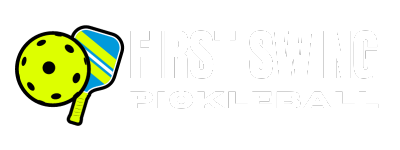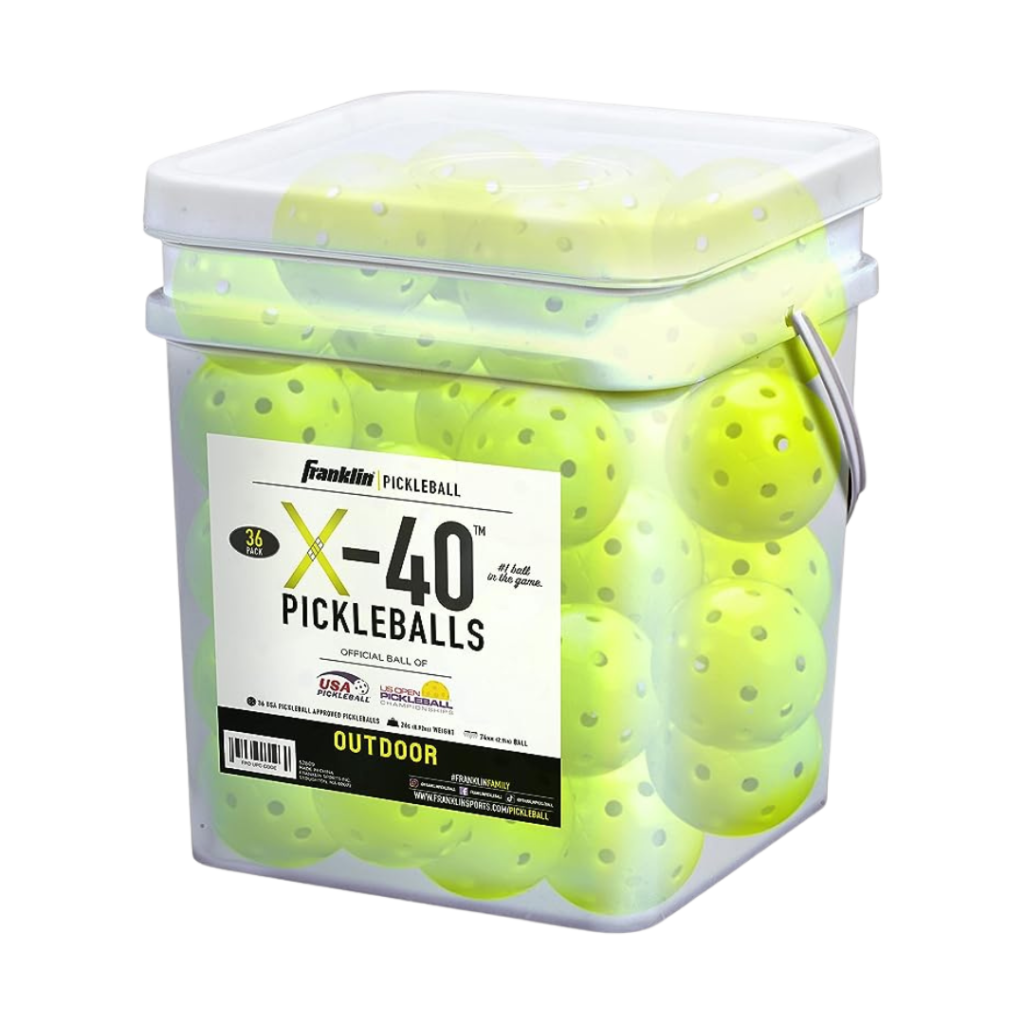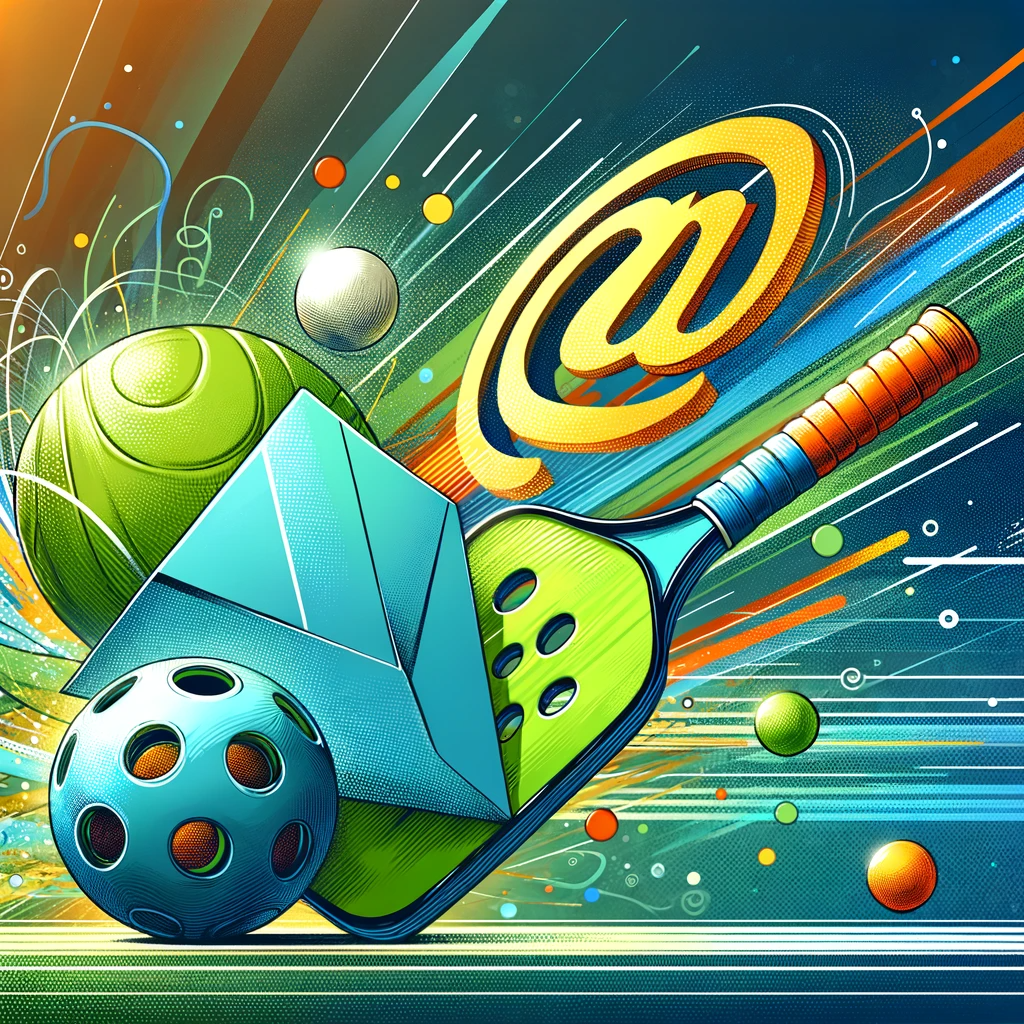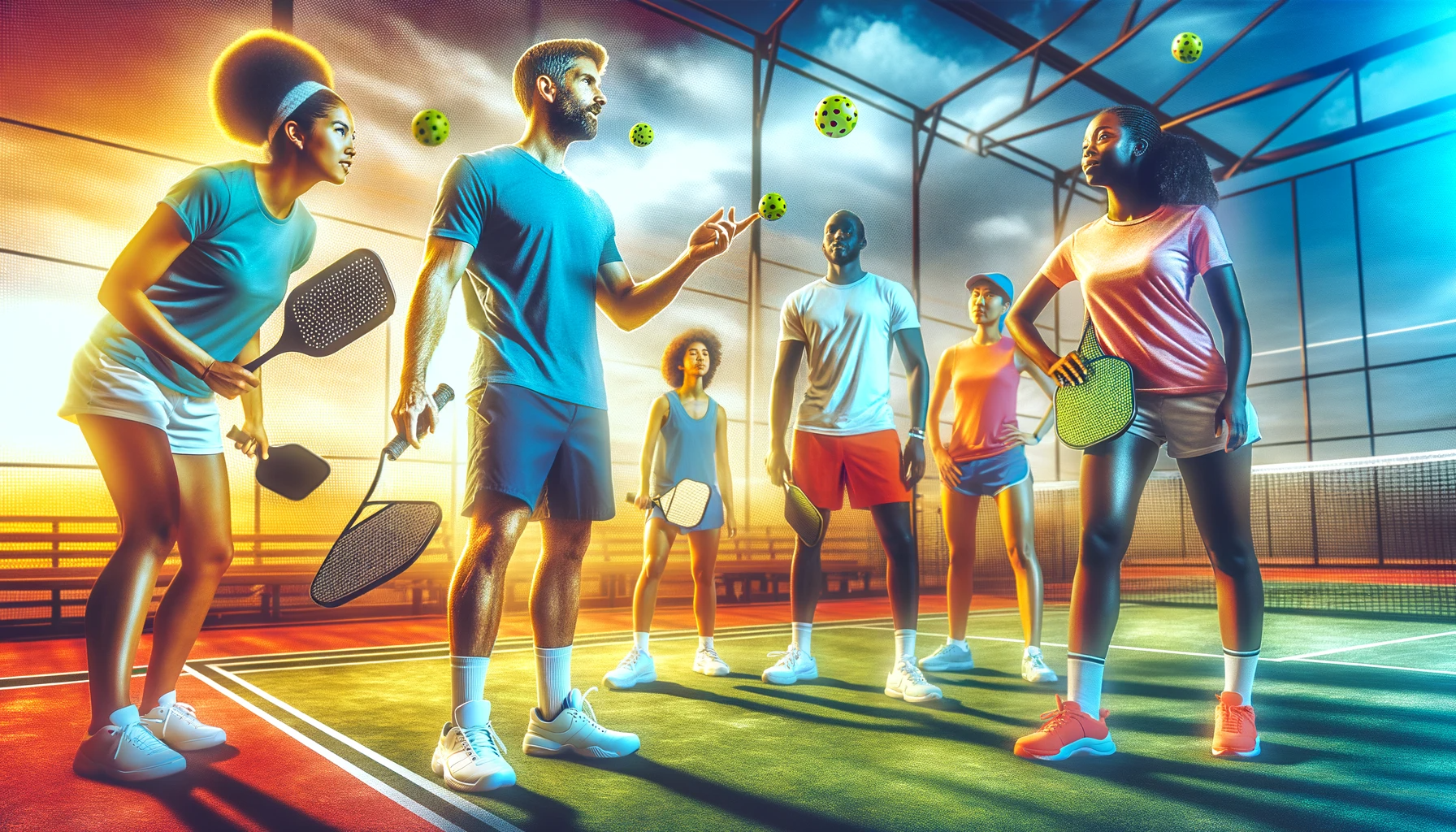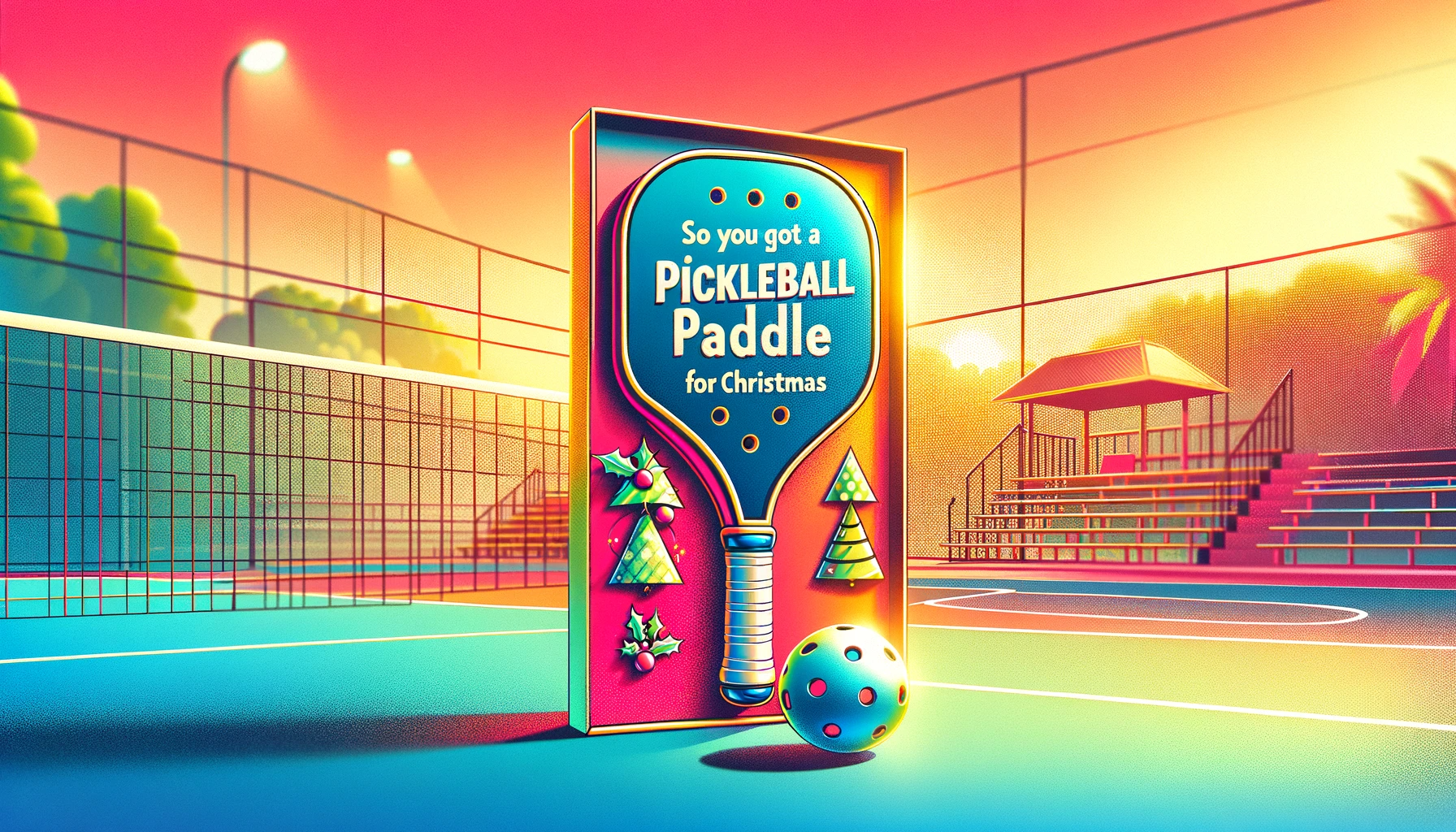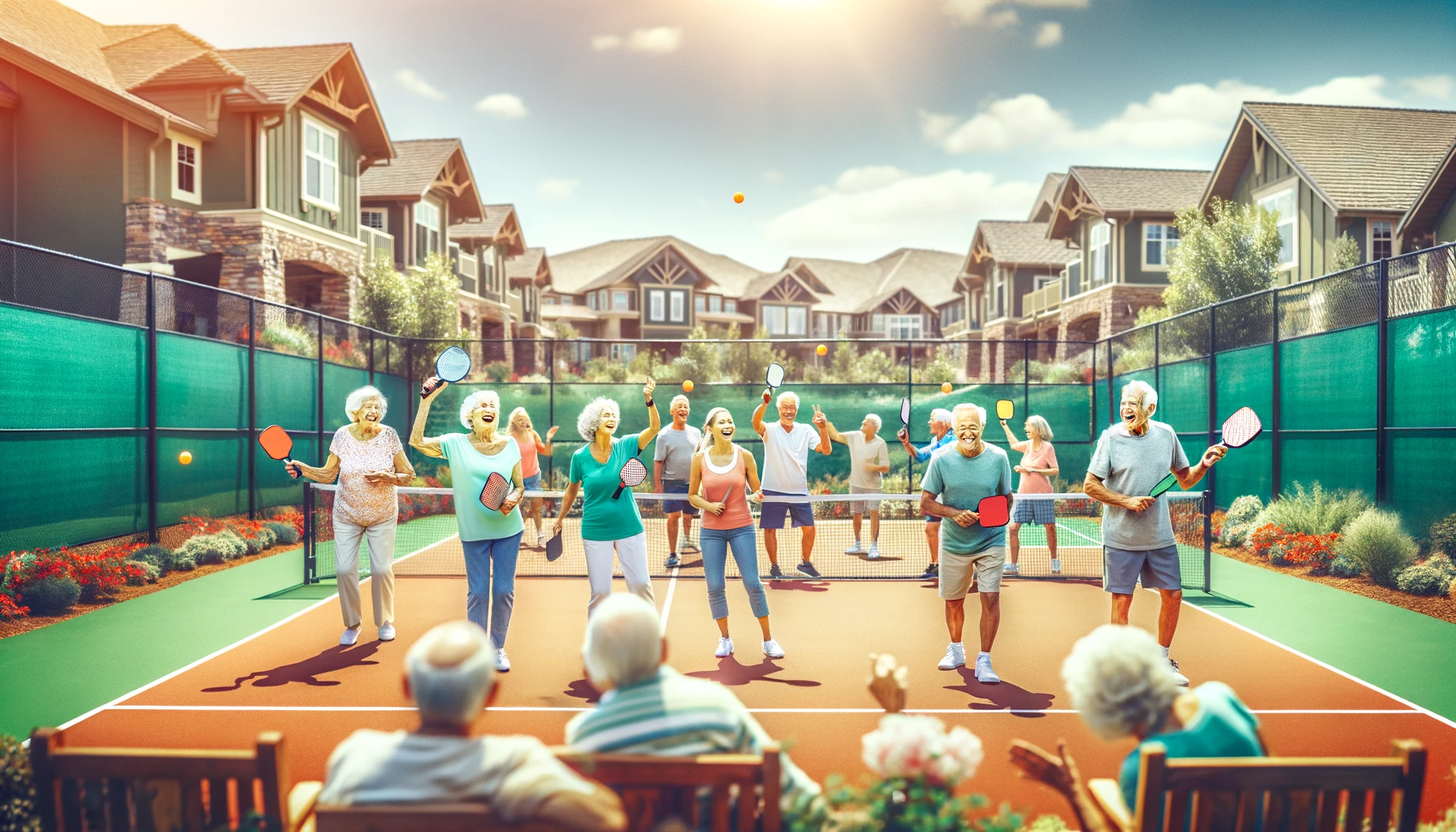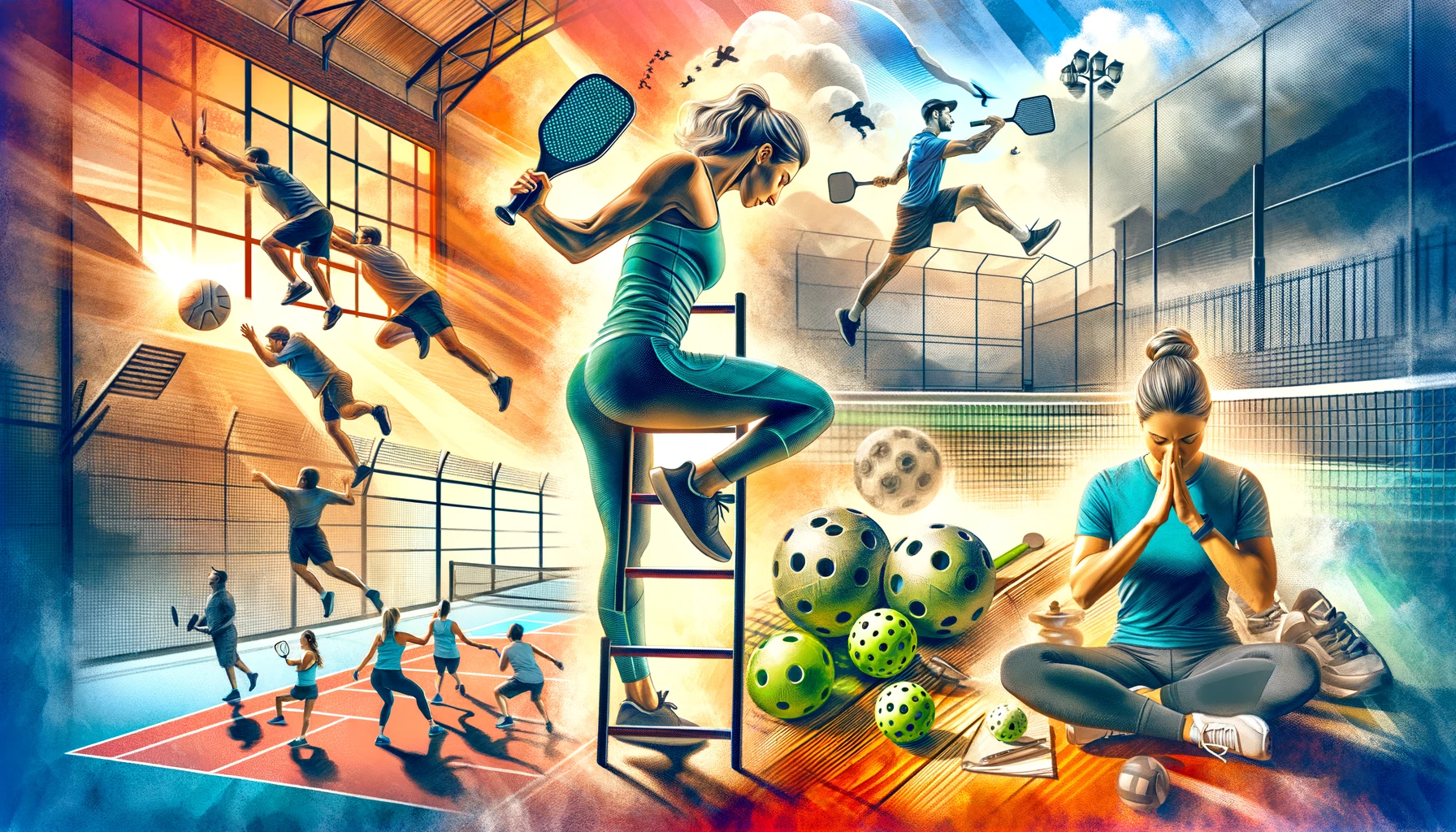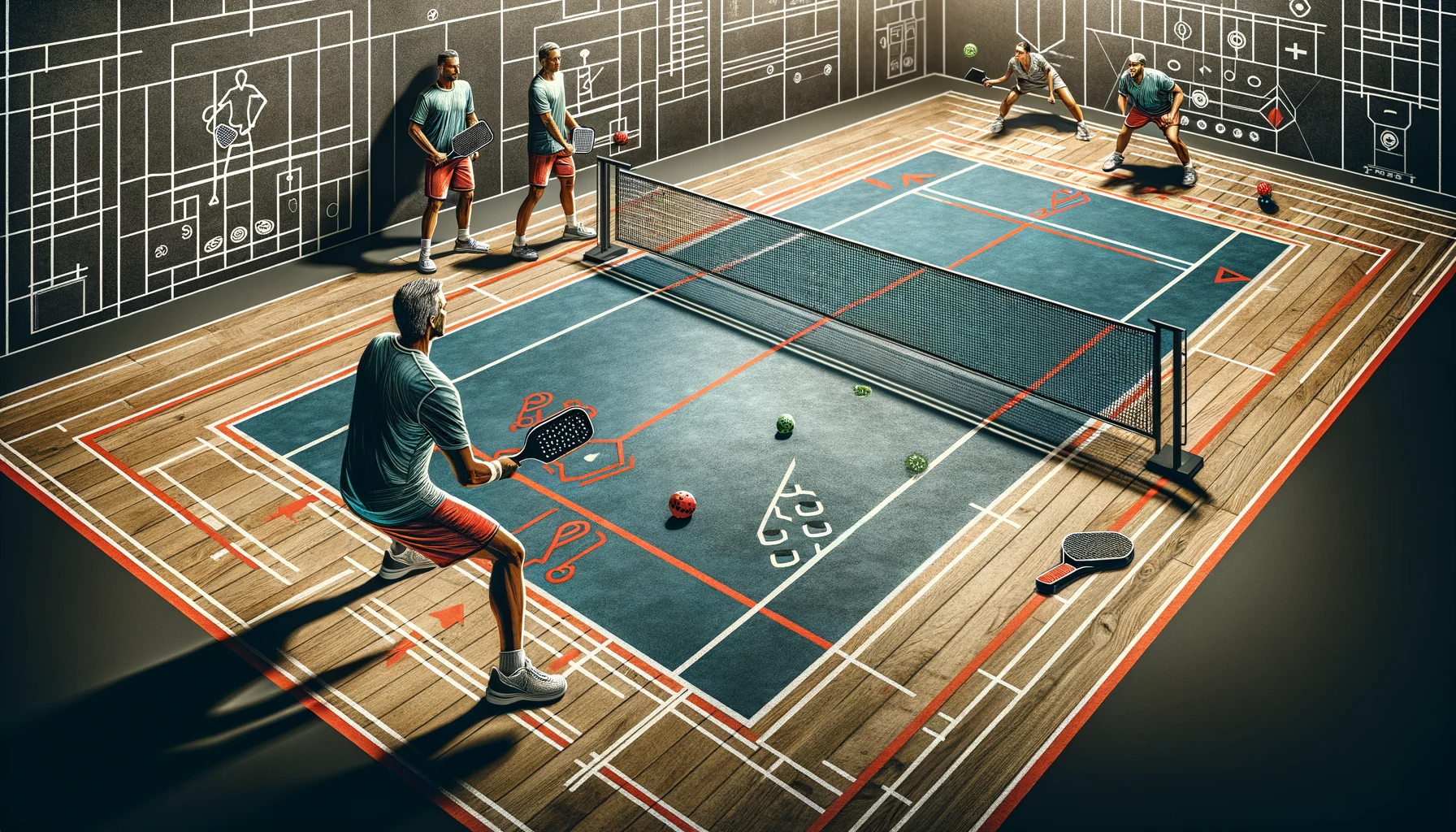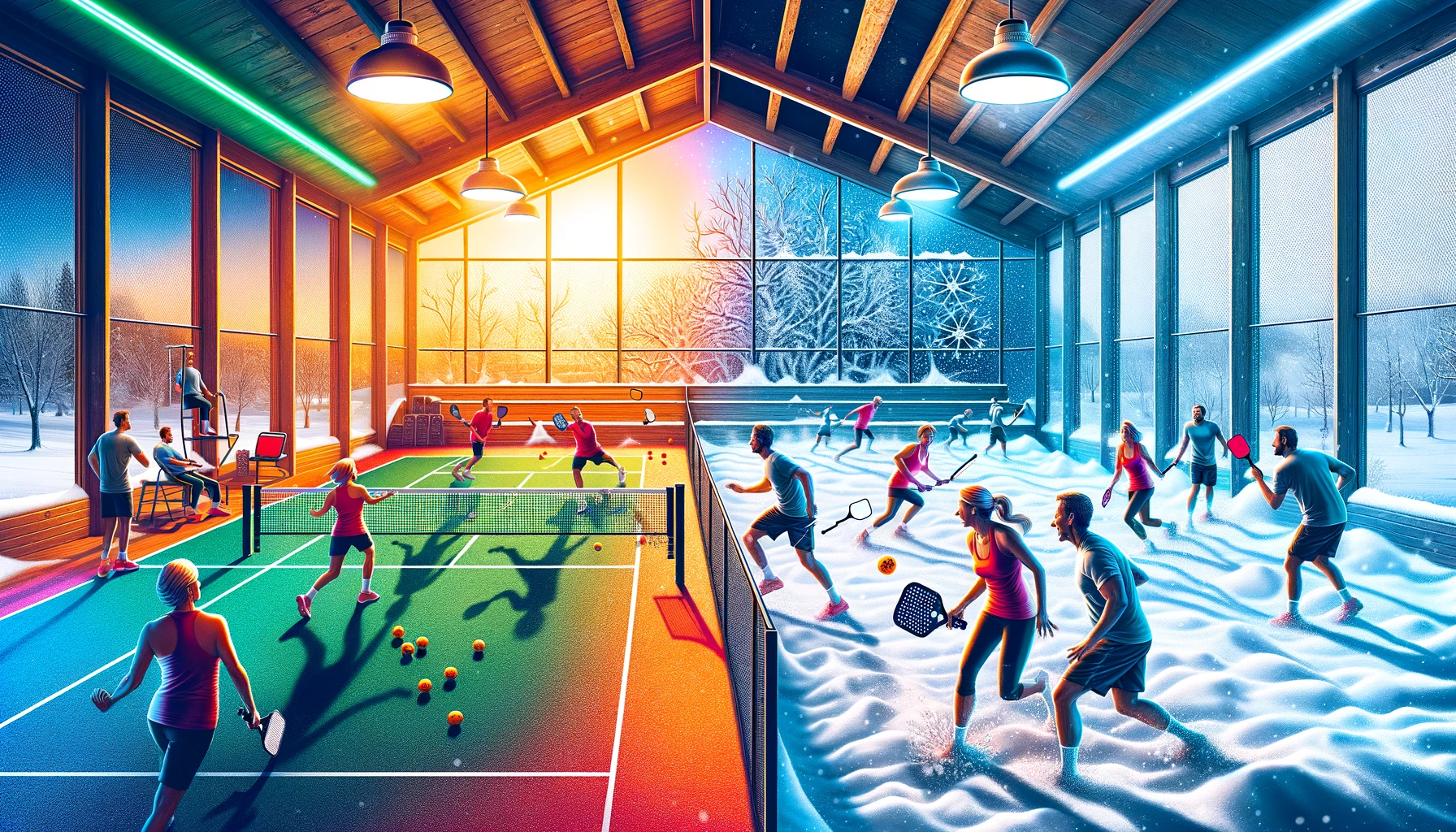
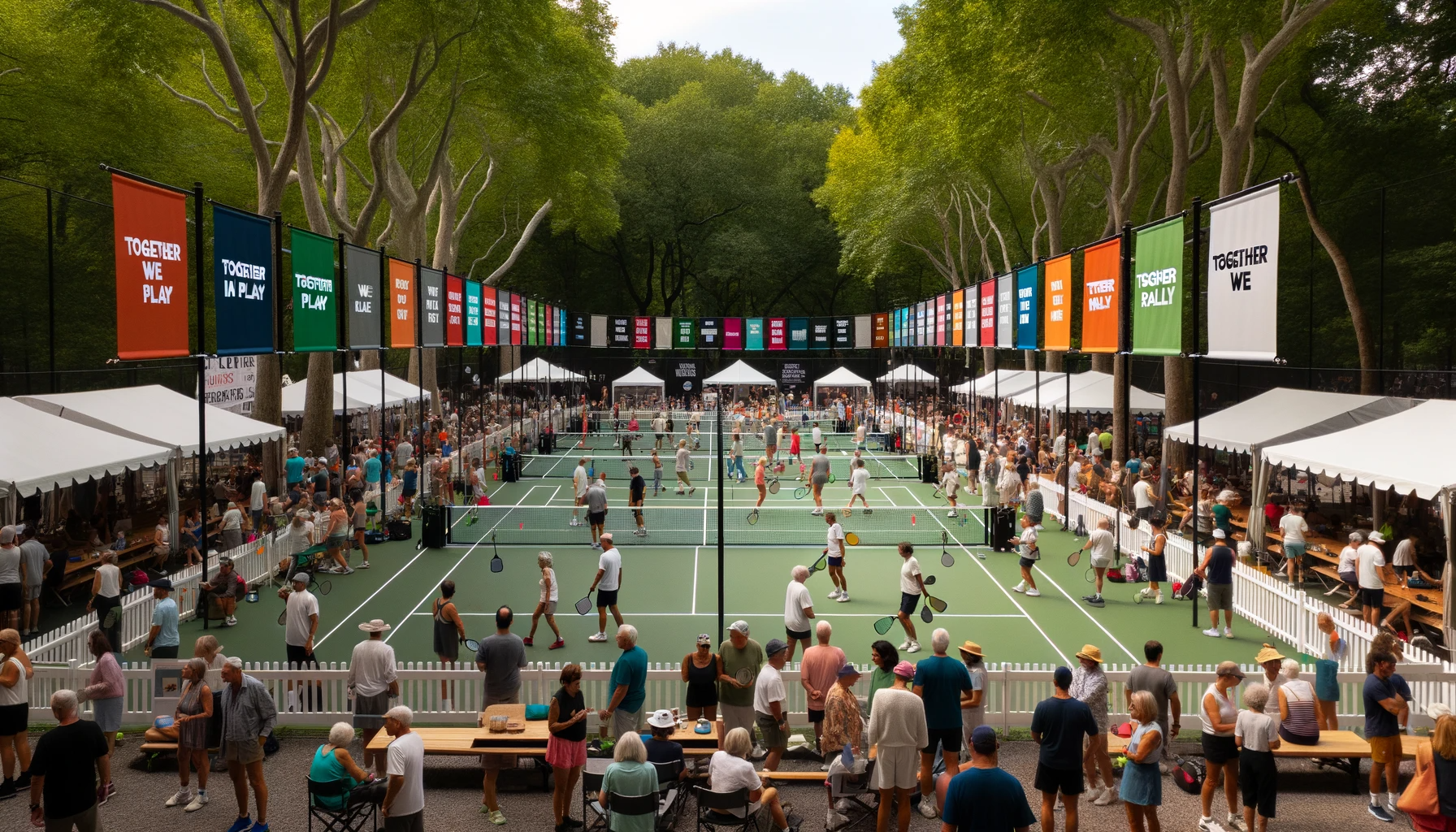
Diverse Pickleball Communities and Their Impact
Pickleball is a rapidly growing sport that has gained popularity in diverse communities around the world. This unique sport, which combines elements of tennis, badminton, and ping pong, has brought people of all ages, backgrounds, and abilities together on the court. The impact of pickleball on these diverse communities has been significant, fostering inclusivity, social connections, and a sense of belonging. In this article, we will explore the impact of pickleball on diverse communities and how it has helped to break down barriers and bring people together.
The Growing Popularity of Pickleball in Diverse Communities
One of the reasons for pickleball's growing popularity is its accessibility. Unlike other sports that require expensive equipment and specialized facilities, pickleball can be played on any flat surface with a paddle and a plastic ball. This makes it a perfect sport for people of all ages and backgrounds to come together and play.
In many communities, pickleball has become a way to bridge the gap between different generations. It is not uncommon to see grandparents playing with their grandchildren, or parents teaming up with their kids. This intergenerational aspect of pickleball not only promotes family bonding but also creates a sense of community.
But pickleball's impact goes beyond just bringing families together. It has also become a way for people from diverse backgrounds to connect and form friendships. In many cities, pickleball courts are located in public parks, making it accessible to people from all walks of life. This has led to a diverse mix of players, from retirees to young professionals, from different ethnicities and cultures.
One such example is the pickleball community in Seattle, Washington. The city is known for its diverse population, and the pickleball community reflects that. Players from different backgrounds come together to play and socialize, breaking down barriers and building relationships. This has created a strong sense of camaraderie among players, with many forming lasting friendships off the court.
Pickleball has also become a way for people with disabilities to participate in sports. The sport's slower pace and smaller court size make it accessible to people with mobility issues. In fact, there are now adaptive pickleball programs specifically designed for people with disabilities. This has not only allowed them to be physically active but has also given them a sense of belonging within the pickleball community.
In addition to promoting inclusivity, pickleball has also become a way to celebrate diversity. Many pickleball tournaments now have divisions for different age groups, skill levels, and even genders. This allows players of all abilities to compete and have fun. Some tournaments even have a "mixed doubles" division, where male and female players team up, breaking traditional gender barriers in sports.
The impact of pickleball on diverse communities can also be seen in its growing popularity among minority groups. In cities like Los Angeles and New York, pickleball has become a popular sport among the Latino community. This has led to the creation of pickleball leagues and tournaments specifically for Latino players, providing them with a platform to showcase their skills and be a part of the larger pickleball community.
Pickleball's impact on diverse communities is not limited to the United States. In countries like India and China, where badminton is a popular sport, pickleball is gaining traction. This has led to a fusion of the two sports, with players incorporating badminton techniques into their pickleball game. This cross-cultural exchange through sports is a testament to the power of pickleball in bringing people together.
In conclusion, pickleball's growing popularity in diverse communities is a testament to its ability to break down barriers and bring people together. Its accessibility, intergenerational aspect, and inclusivity have made it a sport that promotes unity and celebrates diversity. As pickleball continues to grow, it will undoubtedly continue to have a positive impact on communities around the world.
Breaking Barriers: How Pickleball is Bringing People Together
Pickleball may seem like a simple game, but it has a powerful impact on bringing people together from all walks of life. This sport, which combines elements of tennis, badminton, and ping pong, has gained popularity in recent years and has created diverse communities of players all over the world.
One of the most remarkable things about pickleball is its ability to break down barriers and bring people together. Unlike other sports that may have a specific demographic or age group, pickleball is a game that can be enjoyed by anyone, regardless of their background or skill level.
In many communities, pickleball has become a melting pot of diversity. People of all ages, races, and backgrounds come together to play this game, creating a sense of unity and camaraderie. This diversity is not only seen on the courts but also in the social events and gatherings that often accompany pickleball tournaments.
One of the reasons for this diverse community is the accessibility of pickleball. Unlike other sports that require expensive equipment or specialized training, pickleball can be played with just a paddle and a ball on any flat surface. This makes it easy for people of all ages and economic backgrounds to pick up the sport and join in on the fun.
Pickleball also has a unique way of breaking down social barriers. In many communities, it is not uncommon to see retired seniors playing alongside young professionals or families with children. This mix of generations not only creates a fun and dynamic playing environment but also allows for intergenerational connections to be formed.
Furthermore, pickleball has also become a popular sport among individuals with disabilities. The game can be easily modified to accommodate players with physical limitations, making it an inclusive sport for all. This has led to the formation of adaptive pickleball communities, where players with disabilities can come together and enjoy the game alongside able-bodied players.
The impact of pickleball on diverse communities goes beyond just bringing people together to play. It has also become a platform for social change and community outreach. Many pickleball clubs and organizations have used the sport as a way to raise awareness and funds for various causes and charities.
For example, the Pickleball for All organization in the United States uses pickleball as a means to promote diversity and inclusion in sports. They organize tournaments and events that bring together players from different backgrounds and use the proceeds to support organizations that promote diversity and inclusion.
In addition, pickleball has also been used as a tool for community building and revitalization. In some areas, pickleball courts have been built in underutilized spaces, such as abandoned tennis courts or empty parking lots. This not only provides a new recreational activity for the community but also brings people together and creates a sense of pride and ownership in their neighborhood.
The impact of pickleball on diverse communities is not limited to just the players. It also extends to the spectators and supporters of the sport. Pickleball tournaments and events often attract a diverse crowd, creating a sense of community and connection among those who may not have crossed paths otherwise.
In conclusion, pickleball is more than just a game. It has the power to bring people together, break down barriers, and create diverse and inclusive communities. As the sport continues to grow in popularity, we can only hope that it will continue to have a positive impact on individuals and communities around the world. So grab a paddle, head to your local pickleball court, and experience the magic of this sport for yourself.
The Impact of Inclusive Pickleball Programs on Community Health
Inclusive pickleball programs have been popping up all over the country, and their impact on community health is undeniable. These programs not only provide a space for people of all ages and abilities to come together and play, but they also promote physical activity and social interaction.
One of the main reasons why pickleball is so inclusive is because it can be played by people of all ages and abilities. Unlike other sports that may require a certain level of physical fitness or skill, pickleball can be adapted to accommodate players of varying abilities. This makes it the perfect sport for people with disabilities or those who may not have played sports before.
In fact, many inclusive pickleball programs specifically cater to individuals with disabilities. These programs provide adaptive equipment and modifications to the game to ensure that everyone can participate and have fun. This not only promotes physical activity for individuals with disabilities but also creates a sense of belonging and community.
But it's not just individuals with disabilities who benefit from inclusive pickleball programs. These programs also bring together people from different age groups and backgrounds. In a world where people are becoming increasingly isolated and disconnected, pickleball provides a space for people to come together and form meaningful connections.
For example, many senior centers have started offering pickleball as a way to keep their residents active and engaged. This not only promotes physical health for seniors but also provides them with a sense of purpose and social interaction. It's not uncommon to see seniors playing pickleball with younger players, breaking down generational barriers and fostering a sense of community.
In addition to promoting physical health and social interaction, inclusive pickleball programs also have a positive impact on mental health. The sense of community and belonging that these programs provide can help combat feelings of loneliness and depression. Playing pickleball also releases endorphins, which can improve mood and reduce stress and anxiety.
Furthermore, pickleball is a low-impact sport, making it a great option for individuals with joint pain or other physical limitations. This allows people who may not be able to participate in other sports to still engage in physical activity and reap its many benefits.
The impact of inclusive pickleball programs on community health goes beyond just the individuals who participate. These programs also have a ripple effect on the community as a whole. By bringing people together and promoting physical activity, they can help create a stronger and more connected community.
In conclusion, the impact of inclusive pickleball programs on community health is significant. Not only do these programs provide a space for people of all ages and abilities to come together and play, but they also promote physical activity, social interaction, and mental well-being. As pickleball continues to grow in popularity, it's important to recognize and support these inclusive programs and the positive impact they have on our communities. So grab a paddle and join in on the fun – you never know who you might meet on the pickleball court!
Celebrating Diversity: Cultural Influences on Pickleball Communities
One of the most remarkable things about pickleball is its ability to transcend cultural barriers. It's a sport that can be enjoyed by people from all backgrounds, regardless of their age, gender, or ethnicity. This inclusivity has led to the formation of diverse pickleball communities all over the world.
In many ways, pickleball is a reflection of our society. Just like how our communities are made up of people from different cultures, pickleball communities also have a diverse mix of players. This diversity not only adds to the fun and excitement of the game but also brings a unique cultural influence to the sport.
For instance, in some communities, pickleball has become a way to celebrate and preserve cultural traditions. In Hawaii, where pickleball has gained a strong following, players have incorporated elements of hula dancing into their game. They use hula hoops as targets and incorporate hula moves into their shots, making for a fun and culturally rich experience.
Similarly, in Asian countries like Japan and China, pickleball has been adapted to fit their cultural preferences. In Japan, where group activities are highly valued, pickleball has become a popular team sport. Players form teams and compete against each other, creating a sense of camaraderie and teamwork. In China, where table tennis is a national sport, pickleball has been modified to be played on a table, combining elements of both sports.
But it's not just about incorporating cultural traditions into the game. Pickleball has also become a platform for cultural exchange and understanding. In many communities, players from different backgrounds come together to play and learn from each other. This not only promotes diversity but also breaks down cultural barriers and fosters a sense of unity.
In addition to cultural influences, pickleball communities also have a significant impact on the local economy. As the sport continues to grow in popularity, more and more tournaments and events are being organized, bringing in players and spectators from all over the world. This not only boosts the local economy but also promotes tourism and cultural exchange.
Moreover, pickleball communities often come together to support charitable causes and give back to their communities. Many tournaments and events are organized to raise funds for various charities, making pickleball not just a sport but also a means to make a positive impact on society.
In conclusion, pickleball is more than just a game. It's a sport that has the power to bring people from different cultures together, promote diversity, and make a positive impact on society. As the sport continues to grow and evolve, it's exciting to see how these diverse pickleball communities will continue to shape and influence the sport. So next time you step onto the pickleball court, take a moment to appreciate the diverse community that surrounds you and the cultural influences that make this sport so special.
Pickleball for All: Promoting Accessibility and Inclusivity in the Sport
One of the most remarkable things about pickleball is its ability to transcend barriers and bring people from different backgrounds together. Whether it's age, gender, race, or physical ability, pickleball welcomes everyone with open arms. This inclusivity is evident in the diverse pickleball communities that have formed all over the world.
In many places, pickleball has become a melting pot of cultures and generations. It's not uncommon to see a group of retirees playing alongside teenagers, or people from different ethnicities teaming up for a game. This diversity is what makes pickleball so unique and special.
One of the reasons why pickleball is so inclusive is because of its simple rules and equipment. Unlike other sports that require expensive gear and specialized skills, pickleball only requires a paddle, a ball, and a court. This makes it accessible to people of all ages and economic backgrounds.
In addition, pickleball is a low-impact sport, making it ideal for people with physical limitations. The smaller court and slower pace of the game make it easier for people with mobility issues to participate. This has led to the formation of pickleball communities specifically for people with disabilities, such as wheelchair pickleball leagues.
But it's not just physical barriers that pickleball is breaking down. The sport has also become a platform for social inclusion and community building. In many places, pickleball has become a way for people to connect and form friendships with others who they may not have crossed paths with otherwise.
Pickleball communities have also been instrumental in promoting diversity and cultural exchange. In some areas, pickleball has become a popular activity for international students, allowing them to connect with locals and learn about the sport and culture of their host country.
Furthermore, pickleball has also been used as a tool for social change and empowerment. In some communities, pickleball has been introduced as a way to engage at-risk youth and keep them off the streets. It has also been used as a means to promote gender equality, with women's pickleball leagues gaining popularity in many places.
The impact of diverse pickleball communities goes beyond the sport itself. It has also led to the development of new businesses and opportunities. Many pickleball enthusiasts have opened up their own pickleball equipment stores, while others have started organizing tournaments and events. This has not only boosted the local economy but has also created job opportunities for people in the community.
In conclusion, pickleball is more than just a sport. It's a community that welcomes and embraces diversity, promotes accessibility and inclusivity, and brings people together. It's a sport that has the power to break down barriers and create positive change in society. So whether you're a seasoned player or a beginner, join a pickleball community near you and experience the joy of playing a sport that truly is for all.
The Role of Pickleball in Fostering Social Connections in Diverse Communities
One of the reasons why pickleball has been able to bring people together is its accessibility. Unlike other sports that require expensive equipment or specific skills, pickleball can be played by anyone. All you need is a paddle, a ball, and a court. This makes it easy for people of all ages and backgrounds to join in and play together. Whether you are a seasoned athlete or a beginner, pickleball welcomes everyone with open arms.
In addition to its accessibility, pickleball also promotes a sense of inclusivity. The game is played on a smaller court, making it easier for players of different ages and abilities to compete against each other. This creates a level playing field and encourages players to work together and support each other, regardless of their differences. In a world where division and discrimination are prevalent, pickleball serves as a reminder that we are all equal on the court.
Pickleball has also been instrumental in breaking down cultural barriers. In many diverse communities, people from different backgrounds may not have the opportunity to interact with each other. However, on the pickleball court, these barriers are broken down as players come together to enjoy the game. It is not uncommon to see players from different cultures and languages communicating and laughing together, united by their love for pickleball.
Moreover, pickleball has also played a significant role in fostering social connections in diverse communities. In today's fast-paced world, it can be challenging to find time to connect with others. However, pickleball provides a perfect opportunity for people to come together and form meaningful relationships. Whether it's through a friendly game or a tournament, pickleball brings people together and creates a sense of community.
One example of a diverse community that has been positively impacted by pickleball is the LGBTQ+ community. In many places, members of this community may face discrimination and exclusion. However, on the pickleball court, they are welcomed and accepted for who they are. Pickleball has become a safe space for LGBTQ+ individuals to come together, have fun, and form friendships. This has not only improved their physical health but also their mental well-being.
Pickleball has also been a source of empowerment for women in diverse communities. In many cultures, women may not have the same opportunities as men to participate in sports. However, pickleball has provided a platform for women to showcase their skills and compete on an equal footing with men. This has not only boosted their confidence but also challenged societal norms and stereotypes.
In conclusion, pickleball has proven to be more than just a game. It has become a powerful tool for bringing people together, breaking down barriers, and fostering social connections in diverse communities. Its accessibility, inclusivity, and ability to create a sense of community have made it a unifying force that transcends age, background, and culture. So, the next time you pick up a pickleball paddle, remember that you are not just playing a game, but you are also contributing to the positive impact it has on diverse communities.
Diversity in Pickleball: Exploring Different Playing Styles and Strategies
One of the most fascinating aspects of pickleball is the different playing styles and strategies that players bring to the court. Each player has their own unique strengths and weaknesses, and it's these differences that make the game so exciting to watch and play.
Let's start with the age diversity in pickleball. Unlike many other sports, pickleball is not limited to a specific age group. It's a game that can be enjoyed by people of all ages, from children to seniors. In fact, it's not uncommon to see a 10-year-old playing against a 70-year-old on the pickleball court. This age diversity not only adds to the fun and inclusivity of the game, but it also allows for a unique learning experience. Younger players can learn from the experience and wisdom of older players, while older players can learn new techniques and strategies from the younger generation.
Another aspect of diversity in pickleball is the mix of genders on the court. Unlike many other sports, pickleball does not have separate leagues or divisions for men and women. Instead, players of all genders compete together, creating a more inclusive and equal playing field. This not only promotes gender equality but also allows for a more diverse range of playing styles and strategies. Women, who may have traditionally been excluded from other sports, have found a welcoming and competitive community in pickleball.
Pickleball also attracts players from different cultural backgrounds. Whether it's through local community centers or international tournaments, pickleball has become a global sport. This diversity brings a variety of playing styles and strategies to the court. For example, players from Asian countries may have a more defensive and strategic approach, while players from South America may have a more aggressive and fast-paced style. This cultural diversity not only adds to the excitement of the game but also allows for a unique learning experience as players can learn from each other's techniques and strategies.
In addition to age, gender, and cultural diversity, pickleball also attracts players from different athletic backgrounds. Some players may have a background in tennis, while others may have played badminton or ping pong. Each of these sports brings its own set of skills and techniques, which can be applied to pickleball. This diversity in athletic backgrounds not only adds to the variety of playing styles but also allows for a more well-rounded and adaptable player.
The impact of diverse pickleball communities goes beyond the court. It creates a sense of camaraderie and friendship among players from different backgrounds. Pickleball tournaments and events often bring together players from all over the world, creating a global community of pickleball enthusiasts. This sense of community and inclusivity is what makes pickleball more than just a sport, but a way of life for many players.
In conclusion, the diverse pickleball community is what makes this sport truly special. From age to gender to cultural backgrounds, each player brings their own unique playing style and strategy to the court. This diversity not only adds to the excitement and inclusivity of the game but also allows for a unique learning experience. So next time you step onto the pickleball court, take a moment to appreciate the diverse community of players around you and the impact they have on the game.
Pickleball as a Tool for Cultural Exchange and Understanding
One of the reasons why pickleball is so effective in promoting cultural exchange is its accessibility. Unlike other sports that require expensive equipment or specialized skills, pickleball can be played by anyone, regardless of age, gender, or physical ability. This inclusivity has allowed people from diverse backgrounds to come together and bond over a shared love for the game.
In many communities, pickleball has become a melting pot of cultures. It is not uncommon to see players from different countries and backgrounds playing together on the same court. This diversity not only adds to the excitement of the game but also creates opportunities for cultural exchange.
For instance, in the United States, pickleball has become a popular sport among retirees. Many of these retirees spend their winters in warmer states like Florida and Arizona, where pickleball is a staple in retirement communities. These communities often have a mix of residents from different states and even different countries. As a result, pickleball has become a way for these retirees to connect with people from different backgrounds and learn about their cultures.
Similarly, in countries like Japan and China, pickleball has gained a following among the younger generation. In these countries, where traditional sports like badminton and table tennis are popular, pickleball has become a new and exciting sport for the youth. As a result, young people from diverse backgrounds are coming together to play pickleball, breaking down cultural barriers and fostering understanding.
Pickleball has also become a tool for cultural exchange in schools and universities. Many schools and universities have started pickleball clubs, where students from different backgrounds can come together and play. This not only promotes physical activity but also allows students to learn about different cultures and make new friends.
In addition to promoting cultural exchange, pickleball has also been used as a tool for social inclusion. In some communities, pickleball has been introduced as a way to bring people from marginalized groups together. For instance, in the United Kingdom, pickleball has been used to bring together people with disabilities and able-bodied individuals. This has not only helped to break down barriers and promote understanding but has also provided a sense of belonging for those who may feel excluded from other sports.
Furthermore, pickleball has also been used as a means of promoting cultural understanding and acceptance in areas with a history of conflict. In Israel, for example, pickleball has been introduced as a way to bring together Jewish and Arab communities. By playing together, these communities are able to see past their differences and find common ground through the sport.
In conclusion, pickleball has become more than just a game. It has become a tool for cultural exchange and understanding, bringing people from diverse backgrounds together and promoting inclusivity. As the sport continues to grow in popularity, it has the potential to bridge cultural gaps and foster a more connected and understanding world. So the next time you step onto the pickleball court, remember that you are not just playing a game, but also contributing to a larger movement of cultural exchange and understanding.
Conclusion
In conclusion, diverse pickleball communities have a significant impact on the sport and its players. By bringing together individuals from different backgrounds, these communities promote inclusivity and foster a sense of belonging. They also provide opportunities for players to learn from each other and improve their skills. Additionally, diverse pickleball communities help to break down barriers and stereotypes, creating a more welcoming and accepting environment for all players. Overall, these communities play a crucial role in the growth and development of pickleball, making it a more diverse and vibrant sport.
